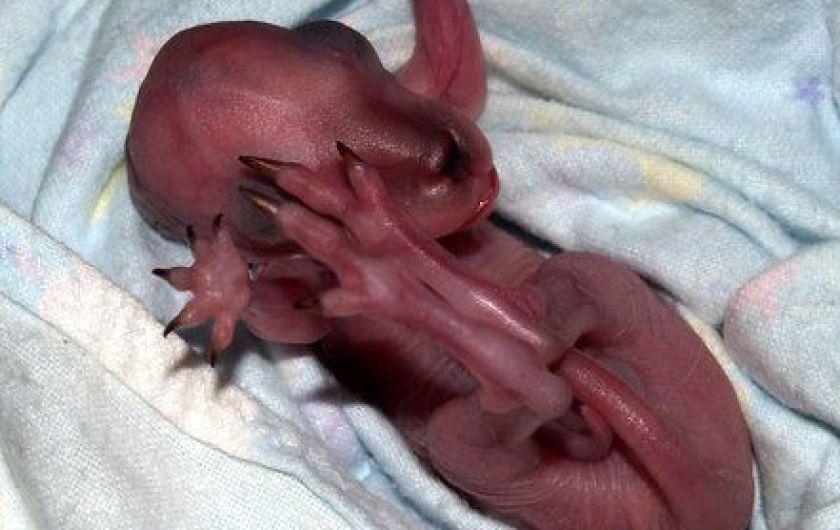The Independent's journalism is supported by our readers. When you purchase through links on our site, we may earn commission.
'British scientists clone dinosaur'? They haven't, they won't, and they never will - here's why
Hoax story has recycled Jurassic Park's science to cause a stir online

Your support helps us to tell the story
From reproductive rights to climate change to Big Tech, The Independent is on the ground when the story is developing. Whether it's investigating the financials of Elon Musk's pro-Trump PAC or producing our latest documentary, 'The A Word', which shines a light on the American women fighting for reproductive rights, we know how important it is to parse out the facts from the messaging.
At such a critical moment in US history, we need reporters on the ground. Your donation allows us to keep sending journalists to speak to both sides of the story.
The Independent is trusted by Americans across the entire political spectrum. And unlike many other quality news outlets, we choose not to lock Americans out of our reporting and analysis with paywalls. We believe quality journalism should be available to everyone, paid for by those who can afford it.
Your support makes all the difference.An extraordinary story of the world’s first cloned dinosaur has got a lot of traction on Twitter and inspired alarmist comparisons to Jurassic Park. It is also, not unexpectedly, a complete fake.
The article claims that scientists at Liverpool’s John Moores University are currently incubating a baby Apotosaurus nicknamed "Spot" after retrieving the creature’s DNA from a fossil and injecting it into the womb of an ostrich.
"Those in the scientific community say the dinosaur cloning – the first ever of its kind – is a milestone for genetic engineering," reads the article from news-hound.org, a site that has previously fooled the internet with its story about a "Shipwrecked British woman saved by Google Earth".
The hoax even includes a picture of the supposed baby dinosaur (it’s actually a very young baby kangaroo) as well as fabricated quotations from scientists at the university, one of which just happens to share the same name as the survivor in the fake shipwreck story. From the article:
"I used to think this kind of thing could only happen in the movies," said Dr. Gemma Sheridan, a LJMU chemistry professor. "But we’re making it happen right here in our lab. It’s astounding."
Interestingly, there is actually a real Gemma Sheridan, but she is neither a shipwreck survivor nor a chemistry professor. Instead, she happens to just be a friend of the owners of the site, who apparently keep on using her name as a joke (for which she attracts a fair bit of attention on Twitter).
The article has caused a stir on social media, with users sharing the story and commenting that "this is not going to end well". There are also the expected comparisons to Jurassic Park – best seen as a testament to the that-just-sounds-plausible-enough science at the heart of the story.
In the film, scientists clone dinosaurs by extracting dinosaur blood (and DNA) from mosquitoes fossilised in amber. Unfortunately, this method of bringing back to life ancient ‘ thunder lizards’ was thoroughly debunked in September last year, when a group of scientist put "the final nail in the Jurassic Park coffin".
The researchers from Manchester University attempted to extract DNA from insects preserved in copal (an intermediate stage between tree resin and amber) that ranged in age from 60 to 10,600 years old. Using the most advanced extraction methods available (which have previously been successful in retrieving DNA from other types of preserved life forms) they were completely unable to reclaim any DNA – ancient or otherwise.
This is simply because DNA molecules just aren’t that tough. They have a half-life of only about 521 years and various environmental conditions – including temperature, microbes, and oxygenation – will only speed up the process of degradation. And although the oldest authentic DNA sequence is thought to be about half a million years old, this is still 65 million years too young to have anything to do with dinosaurs.
For fans of Jurassic Park, this is probably mixed news - dinosaurs going on a rampage on a remote island certainly sounds pretty terrifying but it would also be a sci-fi dream come true. If you're still determined to get some face time with a Velociraptor then forget about the DNA and try building a time machine instead.
Join our commenting forum
Join thought-provoking conversations, follow other Independent readers and see their replies
Comments